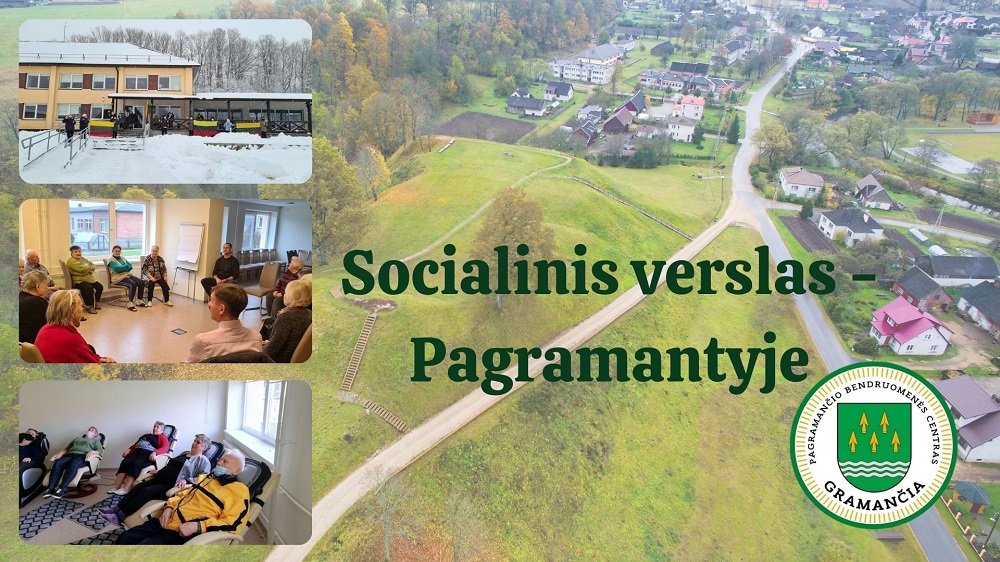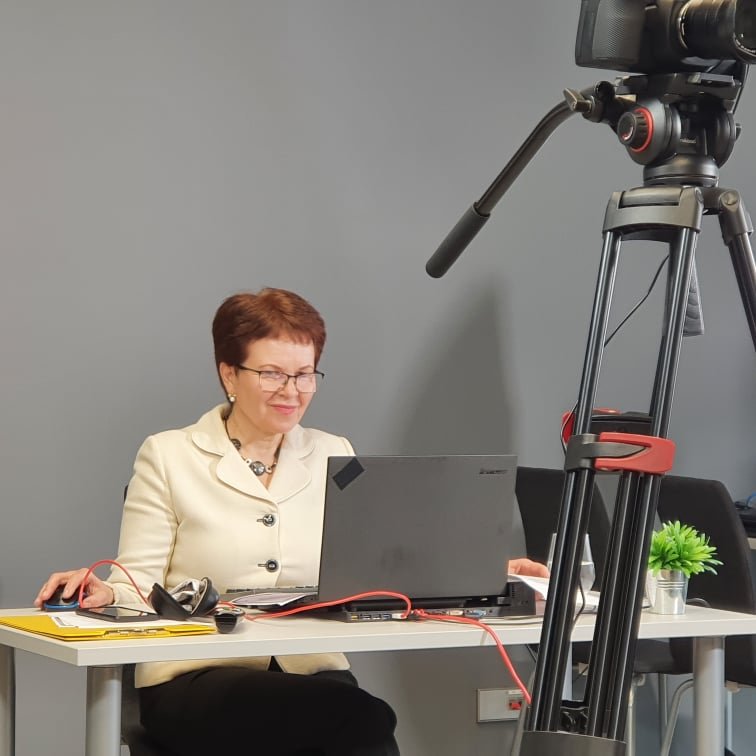
On Tuesday, March 29, the Lithuanian Social Business Association (LIBVA) held a virtual international conference Cooperation for a Green and Inclusive Society, which brought together social businesses and NGOs working in the fields of green economy, sustainability and climate change to promote wider knowledge transfer and sustainability. The event was part of the two-day Social Business Forum.
Helen Nilsson, Director of the Nordic Council of Ministers Office in Lithuania, welcomed the conference and stressed that we provide opportunities for stronger collaboration among NGOs and social enterprises by sharing good Nordic-Baltic practices in addressing environmental problems. Many social enterprises and most NGOs are small, so it is challenging to take on projects of a larger scope and to meet the enormous environmental challenges. Cooperation for green and inclusive societies conference encompasses important aspects that the Nordic Council of Ministers highlighted in Nordic Vision 2030, which focuses on the region’s green, social sustainability, and competitiveness aspects. The aims in the vision are impossible to reach without cooperation with our neighbours. The challenges we face demand local, regional, and global solutions and more collaboration is a key factor. Strengthened cooperation among different actors in Nordic-Baltic countries on the local and regional levels is crucial to make a bigger social and environmental impact in the region,” – said Ms Nilsson.

According to LISBA Project Manager Austė Černiauskaitė, tackling challenges such as climate change requires a multidisciplinary approach. Therefore, it is crucial for organisations working in these areas to work together to develop effective solutions. “Cooperation provides opportunities to expand our activities and achieve higher goals. I believe that the examples presented during the conference and the cooperation competition will inspire other organisations to cooperate and thus increase their impact,” said Ms Černiauskaitė.
The conference featured presentations from social businesses working in the green economy in Estonia, Latvia, Lithuania, and Sweden. Representatives of the organisations shared their good practices in addressing environmental issues and discussed ways to work together for a wider positive impact.

Presentations were given by representatives of Urbanbee.lt, company head Paulius Chockevičius, and Research Innovation Manager Rimantė Balsiūnaitė. “Together with my team, we are bringing the idea of urban beekeeping to life to save endangered bees and create sustainable, conscious, and environmentally friendly urban communities,” said Mr Chockevičius, founder of Urbanbee.lt and urban beekeeper.
“We have seen in our work that we can combine innovation, sustainability and social aspects,” said Maria Borbos, CEO of Nimle Patch, which develops social business in Sweden within the circular economy.

Laura Žukovska-Supe, Head of Swimbe from Latvia, introduced a social business that reduces textile and plastic waste. Their product is personalised swimwear made with recycled plastic, and they are currently looking for partners in Lithuania to expand this unique activity in the Baltic States.
Kaspar Nummert, head of Sõbralt Sõbrale, one of Estonia’s largest social businesses in the green economy, shared his story. They run a chain of shops and use the proceeds from selling second-hand clothes and items to implement various social projects across the Baltic States. “By bringing orderly items to the store or buying from our stores, customers contribute to supporting children and poorer families,” says Mr Nummert.
The discussion between organisations working on environmental issues and/or on capacity building and promoting cooperation was attended by Julija Šrederskaitė, project manager of VšĮ NVO Akseleratorius, Šarūnas Savickas and Guoda Bardauskaitė, founders of Miško Uostas, Rasa Viederytė, head of projects at Klaipėda University, Simona Uvaroitė, Project Manager of VšĮ Versli Lietuva, and Gabrielė Janilionytė, project manager at Šilainiai urban eco festival.

Social Business Cooperation Awards
In the evening, the final event of the forum took place at Miesto Laboratorija – the Social Business Cooperation Awards and the closing ceremony of the Social Business Forum. Social entrepreneurs were recognised for their sustainability, regional innovation, and cooperation for the first time. Furthermore, the Lithuanian Social Business Association (LISVA) invited social business representatives to participate in the cooperation competition.
Social business organisations shared their success stories and how they cooperate with NGOs, businesses, the public sector, and other social businesses to implement activities of value to society.
The “Ambassadors of Sustainability,” awarded for sustainable cooperation in pursuit of environmental goals, was won by the social business Žalia Žinutė.

Žalia Žinutė has brought the reusable bag boom to Lithuania, created the Tvarių Bičiulių library, a community blog and shop, where they invite you to discover amazing local creators and green everyday life. This business brings people and initiatives together in a sustainable community.
The “Community Builders” award for an organisation that mobilises others and brings the community together for its social/environmental purpose was awarded to the social organisation Senorų Pasaulis.
Senorų Pasaulis is a modern, virtual learning and communication space for older people. The organisation’s philosophy is that a healthy and happy old age results from intergenerational cooperation’s purposeful and consistent effort. By inviting seniors to participate in remote lectures, we create an environment where people experiencing loneliness and social exclusion due to age can stay active, healthy, and independent for as long as possible.
The award winners are rewarded with practical business advice, and the sustainability ambassadors are also awarded a mentoring programme at a successful social business organisation in Canada. The prize was set up by ChangeMakers’ON, an international social innovation and business development programme consisting of hackathons, boot camps, incubation, and training.
The “Entrepreneurial Regions” award, which is dedicated to open and collaborative social businesses operating in the regions, was won by the Pagramanča Community Centre “Gramančia.”

The community in Pagramantis, in the Tauragė region, has been developing a community-based social business since 2017. It has set up a social care home where 24 people receive social services. It also provides education for tourists and visitors. In addition, the community members provide catering services not only to the local residents but also to the residents of the social care home and tourists who visit the town in large numbers. Social enterprises have helped create 15 jobs, most of them with community members.
To win the award, the Gramančia community will be awarded a video report that will reflect the community’s activities. This is part of the LISVA project “Drąsa veikti ir keisti.”
“Within the scope of this excellent cooperation, we have managed to establish closer relations with foreign partners from the Baltic and Nordic countries, discover new ways of cooperation, and develop methods of fostering cooperation,” said Viktorija Bražiūnaitė, LISBA’s Director, summing up the event.

According to her, she will soon be able to share a ready-made set of best practices for cooperation with the ecosystem, presenting successful examples of cooperation between social businesses working in the environment, ecology, and circular economy and generating new ways to foster cooperation. This document will be available to all social business and non-governmental organisations.
The project is part of the Nordic Council of Ministers Office in Lithuania’s Funding programme for NGO cooperation in the Baltic Sea Region. It is designed to strengthen cooperation between social businesses and NGOs working on environmental and climate change issues.

Be the first to comment